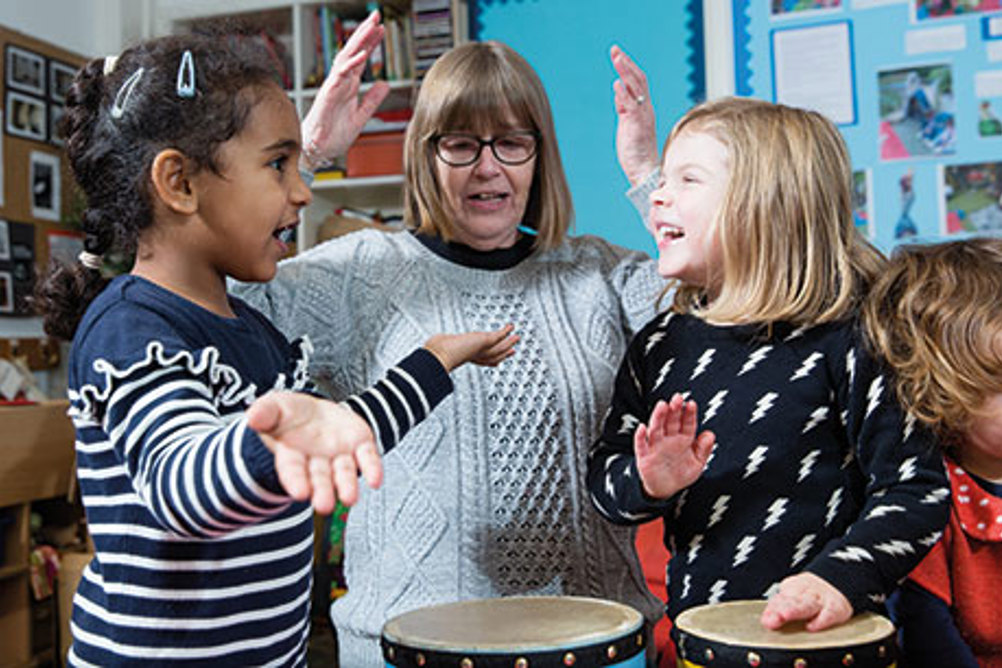
It’s important to remember that the development of reading and writing is not only dependent upon children’s ability to listen and attend, understand and talk. It is also dependent on personal characteristics – such as confidence and perseverance, curiosity and critical thinking.
As we have seen throughout this series, music contributes a great deal to a child’s development in the Prime areas of learning – personal and physical development and communication. But music also has a specific role to play in children’s growing ability to read and write.
READING AND WRITING
Music changes the chemistry of the brain, making learning more pleasurable and thus more effective. Sally Goddard Blythe highlights a number of research studies which suggest that musical experience affects the right side of the brain, enhancing ‘melody recognition, language comprehension, rhythm, spatial orientation, and picture recognition’, and the left side of the brain in relation to sound discrimination and timing. All of these elements contribute strongly to children’s reading development.
Register now to continue reading
Thank you for visiting Nursery World and making use of our archive of more than 35,000 expert features, subject guides, case studies and policy updates. Why not register today and enjoy the following great benefits:
What's included
-
Free access to 4 subscriber-only articles per month
-
Unlimited access to news and opinion
-
Email newsletter providing activity ideas, best practice and breaking news
Already have an account? Sign in here









